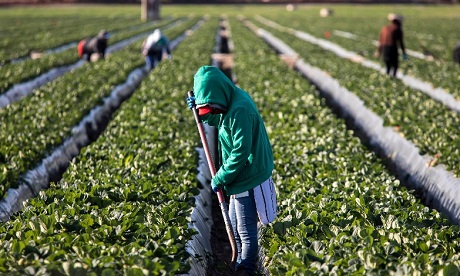Tough new modern slavery legislation is near at hand. So is some straight-aiming Kiwi tech, with its sights on spotting exploited workers.
Bosses who like to turn staff into slaves should think again.
New legislation
By the end of the year New Zealand is likely to have new legislation to combat modern slavery.
Submissions on a discussion document “A legislative response to modern slavery and worker exploitation” close on 7 June.
The draft legislation means all Kiwi companies, big or small, must take ‘reasonable and proportionate’ action if they became aware of slavery in their operations.
This includes their domestic and international supply chains and discoveries of worker exploitation in their New Zealand business.
Mandatory reporting requirements will see medium and large organisations (annual revenue over $20 million) obliged to show how they are addressing slavery and worker exploitation.
Very large organisations (annual revenue over $50 million) would have to undertake due diligence to prevent, mitigate and remedy slavery in their global and domestic operations and supply chains.
Directors could be held personally liable for breaches. Penalties might be anywhere from $600,000 to $5 million says Bell Gully lawyer Richard Massey. Companies need to start thinking about what they can do to prepare.
A wide range of potential measures could be implemented to prevent and mitigate any identified risks as part of meeting due diligence responsibilities, Massey says.
“The examples provided include: regularly surveying suppliers, commissioning third-party audits of suppliers’ compliance with human rights and employment standards, and establishing hotlines or whistleblowing channels for reporting of concerns.”
If the draft law goes through, “wilful blindness” – a legal definition of someone who could and should know about something but deliberately chooses not to find out – would not be a defence for a company where modern slavery is found in the supply chain.
Adapting Kiwi tech
New Zealand’s orchard industry is one organisation that’s taking the modern slavery issue seriously. Many of its clients rely on overseas migrant labour.
Extreme abuse has been uncovered. Modern slavery, especially involving Pacific Island and Asian workers, is alive and well in New Zealand.
Given the known risks, the NZ Apple and Pear member companies wanted to be sure exploitation wasn’t happening.
They decided to use established technology to uncover and prove abuse was taking place.
Or, using the same technology, being able to prove it to customers and Government that it wasn’t.
The way to achieve this wasn’t in the realms of rocket science.
It was already in the toolbox in the shape of anonymous worker surveys for checking out company culture and other issues.
Could similar technology be used to check out exploitation in the orchards? Of course.
It was as easy as that.
Workers are given a link to an anonymous survey which they can fill out on their phone or laptop, at work or at home. They are asked questions about their workplace pay and conditions.
They answer.
Simple.
Source
- Newsroom
- Image: Anti-Slavery Internatonal
News category: New Zealand.




